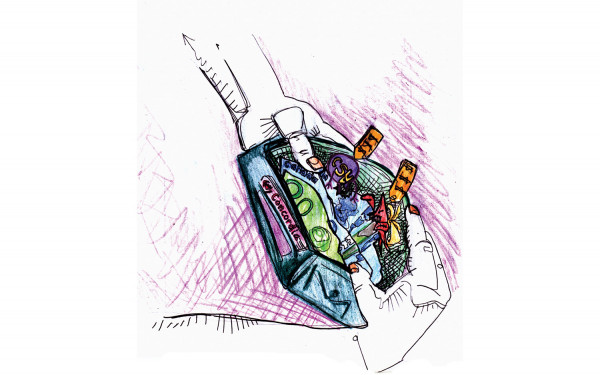Editorial: Turning Talk into Anti-Fascist Action at the CSU
Multicoloured posters have popped up around Concordia, advertising a coming protest on Nov. 12.
The Grande manifestation contre la haine et le racisme is a proactive response to the growing far-right presence in Quebec.
The demonstration’s Facebook page says it advocates against racism, colonialism, sexism, transphobia and “all forms of [sic] Hate conveyed by the Far-Right.” It also stands on an anti-capitalist, anti-austerity, and anti-border platform.
The Concordia Student Union formally endorsed this protest at their council meeting on Oct. 11.
The CSU’s endorsement cites its new anti-fascist position, added to the positions book in September. That position opposes the rise of fascism and establishes support for local groups that do the same. The CSU also cites the first part of their policy on feminism, which acknowledges “different barriers based upon class, ability, race, gender expression, religion, ethnicity, etc.”
The Link supports the CSU’s new anti-fascist policy and applauds the CSU’s endorsement of the Nov. 12 protest as an application of existing anti-oppression policies.
Of course, how the CSU organizes to support the protest is something we will watch. An endorsement is one thing, but they did not say in the motion whether they’ll organize a contingent to attend.
We encourage the CSU to contribute to mobilizing for the demonstration in whatever way is possible. Whether that means postering on campus, organizing a Concordia contingent, or providing some form of material support to the organizers, we hope to see the CSU take on an active role in making this demonstration happen.
The CSU has contributed to protests before—one of their campaigns led to a demonstration last December,where students attempted to disrupt a Board of Governors meeting over a hike in international tuition fees.
The stakes for successful turnout are high. When the CSU is active, it raises awareness of the issue at hand, visibly supports marginalized communities, presents a more united front with other anti-oppression activists, and sets a tone of engagement from the highest level down.
We’ve also seen why mobilizing in solidarity truly matters in the last few months. Far-right groups such as La Meute, Storm Alliance, and the Canadian Coalition of Concerned Citizens are organizing openly and regularly in Quebec. The media have followed them and their actions, because they are instigators and that guides the narrative.
Shutting down these groups is vital, and will be as long as they operate openly. But proactive—rather than reactive—anti-oppression demonstrations take power of narrative control away from far-right groups.
A more sympathetic media environment might also lead to broader knowledge of the long-term, often-ignored, grassroots activism that is the bread-and-butter of fighting colonialism, capitalism, and fascism.
The CSU seems to have grasped some of this by endorsing the protest. They aren’t alone.
At Concordia, the Fine Arts Student Alliance has also endorsed the protest, and the School of Community and Public Affairs is holding an endorsement vote on Wednesday. The Students’ Society of McGill University endorsed it, as did several departments at UQAM, along with the provincewide student union Association for the Voice of Education. Student groups like Quebec Public Interest Research Group Concordia and Divest McGill have signed on, and schools, community organizations and labour unions across the province have too.
As of Oct. 6, according to the most up-to-date list on the demonstration’s site, 71 groups endorsed the protest.
We’re glad that the CSU is one of them. We’ll be even gladder if the CSU’s political embrace of anti-fascist action translates to mobilization—especially if councillors and executives set the example and show up themselves to stand for the politics they say they support.





